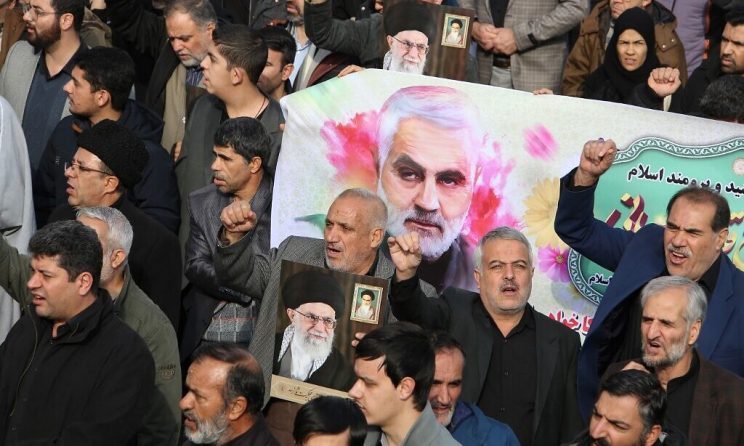
The New Year 2020 has just started but instead of expecting a peaceful year, fears of an upcoming World War III have already been spread all around the world. This news is doing the rounds of social media after the killing of an Iranian soldier by the United States.
The Pentagon said on Thursday that the US President Donald Trump ordered the killing of Iran Revolutionary Guards commander Qasem Soleimani, who died in Baghdad “in a decisive defensive action to protect US personnel abroad,”
The attack came among tensions with the United States after a New Year’s Eve attack by Iran-backed militias on the US Embassy in Baghdad. The two-day embassy attack which ended Wednesday urged Trump for ordering about 750 US soldiers deployed to the Middle East to perform the attack.
Who is Qasem Soleimani and Why was he killed?
Qasem Soleimani was an Iranian major general in the Islamic Revolutionary Guard Corps (IRGC) and, from the year 1998 until his death. He was the commander of its Quds Force, a division primarily who has been responsible for extraterritorial military and clandestine operations.
After being unknown in Iran until the year 2003, General Soleimani had turned out to be the most recognizable battlefield commander of Iran, disregarding calls to enter politics but becoming as powerful, if not more, than its civilian leadership.
In addition to that, Soleimani was also a commander of the combined Iraqi government as well as the Shia militia forces that advanced against ISIL in the years 2014 and 2015. Soleimani was one of the first who supported Kurdish forces fighting ISIL, providing them with arms.
For Iranians he was the icon since the Islamic Revolution have been stern-faced clergy, General Soleimani extensively signified a figure of national resilience in the face of four decades of US pressure.
For the US as well as for Israel, he was a shadowy figure in command of Iran’s proxy forces, who is responsible for fighters in Syria backing President Bashar Assad as well as for the deaths of American troops in Iraq.
Previously this week, after an attack on the US embassy in Iraq, which America has blamed on Iran, the US then launched airstrikes.
The Pentagon then later confirmed on Friday that US forces conducted an airstrike at Baghdad airport in order to put off “future Iranian attack plans”.
Soleimani was then killed in a targeted U.S. drone strike that was held on 3 January 2020 in Baghdad, Iraq. Abu Mahdi al-Muhandis, who was the deputy head of the Iraqi Popular Mobilization Forces (PMF), was also killed in the attack. On the other hand, Soleimani was succeeded as commander of the Quds Force by Esmail Ghaani.
Why is World War 3?
The US President, Mr. Trump said the general was “directly and indirectly responsible for the deaths of millions of people”.
Under Soleimani’s leadership, Iran had bolstered Hezbollah in Lebanon and other pro-Iranian militant groups. He had also expanded its military presence in Iraq and Syria as well as orchestrated Syria’s offensive against rebel groups in the nation’s long civil war.
General Qassem Soleimani has killed or badly wounded thousands of Americans over an extended period of time, and was plotting to kill many more…but got caught! He was directly and indirectly responsible for the death of millions of people, including the recent large number….
— Donald J. Trump (@realDonaldTrump) January 3, 2020
Iran’s Supreme Leader Ayatollah Ali Khamenei, on the other hand, said: “severe revenge awaits the criminals” behind the attack. He then also announced three days of national mourning.
The tension between the two countries increased and the trend for World War Three began as people drew parallels between the death of General Soleimani as well as additional killing that was held 105 years ago.
Even though many people on Twitter speculated about the outbreak of World War Three, the US and Iran are known for their bombast, and it is unclear what revenge, if any, will be extorted.
Tweeting again on Friday, Mr. Trump said Soleimani had “killed or badly wounded thousands of Americans… and was plotting to kill many more” and “should have been taken out many years ago”.
“While Iran will never be able to properly admit it, Soleimani was both hated and feared within the country,” he said.






